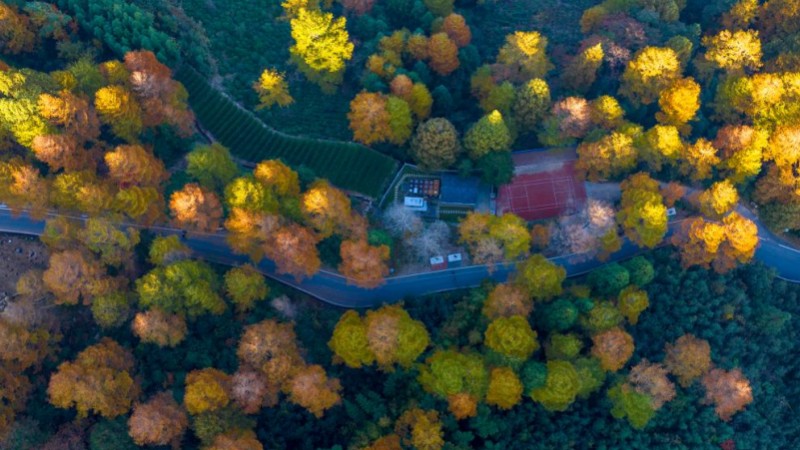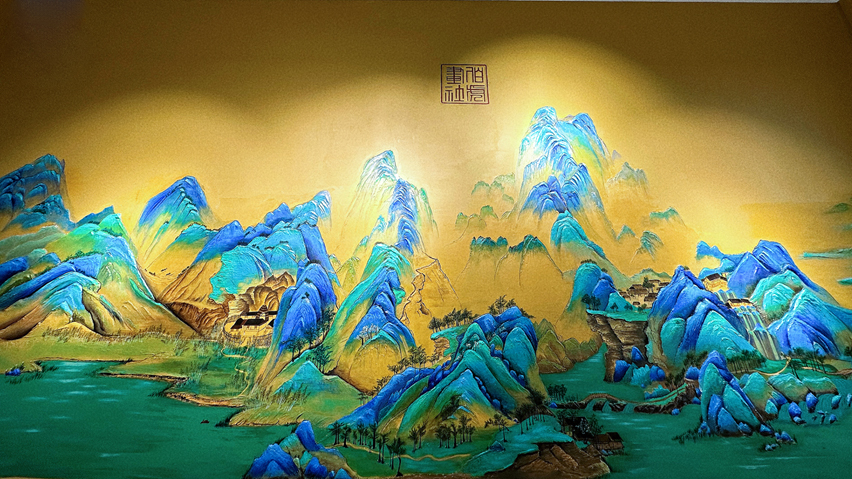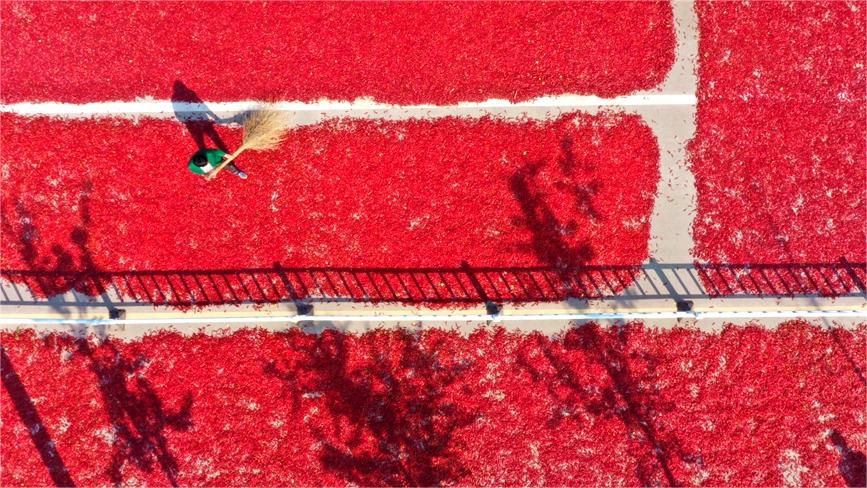Cactus becomes a solution to desertification, income generation in SW China's Yunnan
In the Zhuangzitian village group located in Wenshan city, Wenshan Zhuang and Miao Autonomous Prefecture in southwest China's Yunnan Province, local villagers have discovered a distinctive approach to combat desertification: cultivate cacti. This innovative method has brought them economic prosperity.
Cacti can be seen covering the barren rocky hills in the village group.
A villager named Wang Yunxi runs a farmhouse restaurant here. He is one of the first local villagers to make a fortune from cacti.
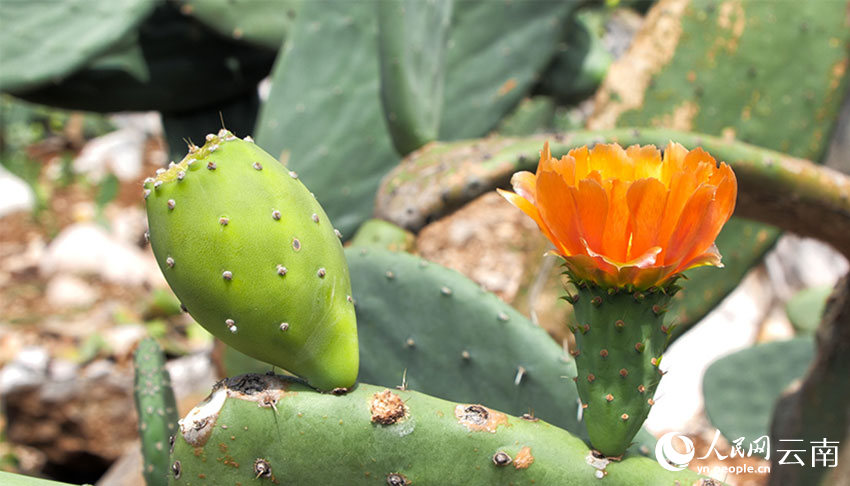
Photo shows a cactus fruit and flower. (Photo/Wang Hongqiu)
The hills in the Zhuangzitian village group, similar to other areas in the prefecture, showcase a characteristic karst rocky desertification landscape. In this region, over 80 percent of the land is affected by rocky desertification.
In the past, Wang, like many other villagers, had sought employment outside the village. He worked in factories and also served as a security guard. Despite his more than 10 years working, he was able to sustain a livelihood but did not achieve wealth.
Previously, the hills in Zhuangzitian were sparsely planted with cacti. Some villagers planted these cacti in front of their houses or on the periphery of their fields. When the cactus fruits ripened, they would be harvested and sold in the market. The price of these fruits varied, ranging from 1 or 2 yuan, to 4 or 5 yuan, depending on their size.
During a meeting attended by village officials, the topic of cactus fruits and their high market demand was brought up. Recognizing the potential, everyone agreed to shift their focus to cultivating cacti. Given that the rocky desertification land had no other viable use, the villagers decided to give it a try.
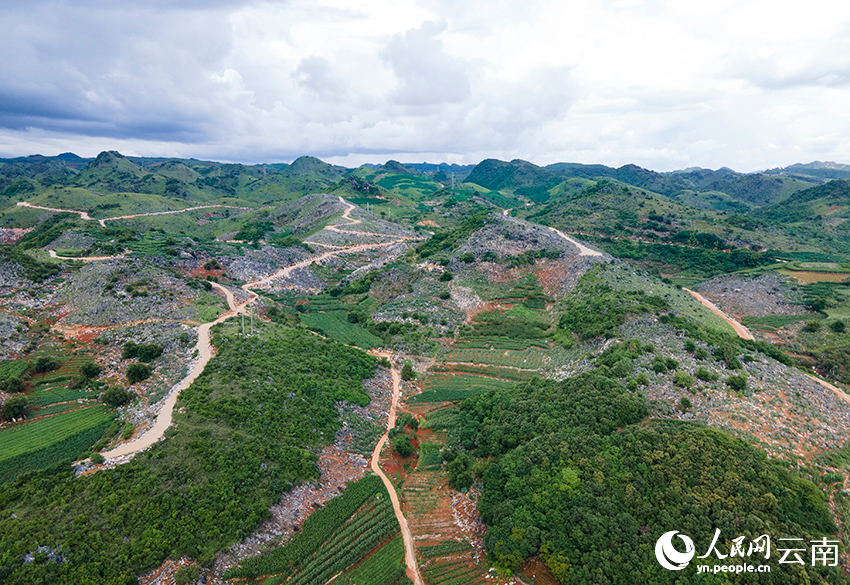
Aerial view of cacti planted in the Zhuangzitian village group, with the white rocky area being the main cultivation area. (People's Daily Online/Fu Hao)
While deciding to develop the cactus industry, the villagers thought that paving hardened roads linking the village group and the mountains should be a priority.
Lu Chunhong, the newly appointed Party chief of the village group, came up with an idea.
Lu had been doing business outside the village group for many years. In 2021, he returned with a project focused on attracting local talent back home to contribute to the development of the hometown. He was elected as the Party chief of the village group.
With his extensive business experience, Lu proposed an innovative approach to the road construction project. He recommended allowing qualified contractors to bid for the project, where they would provide the necessary funds upfront. The village would then repay the contractors once the cactus industry started generating profits.
Thanks to Lu's esteemed reputation in the business world, five companies participated in the bidding process for the road construction project. Eventually, one company emerged as the winner, securing the project with a bid of 2.08 million yuan ($284,712). In 2021, the construction of the roads commenced, and within six months, all five roads, spanning a total of 20.8 kilometers, were completed.
In the meantime, a collective economic cooperative was formed within the village group. Leveraging the drought-resistant nature of cacti, large-scale cultivation efforts were initiated, resulting in the transformation of once barren hills into thriving cactus plantations within a year.
The local villagers also devised a distinctive set of cultivation techniques, leading to remarkable improvements in the growth rate and yield of the cacti.
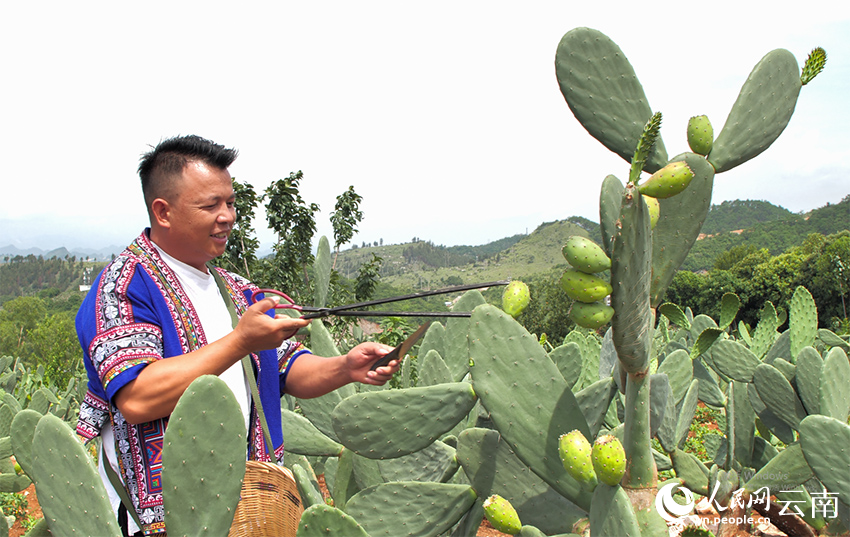
WangYunxi picks cactus fruits. (Photo/Wang Hongqiu)
In 2022, the cactus plantations spanning 1,400 mu (93.33 hectares) within the village group yielded an abundant harvest of 260 tonnes of cactus fruits. These fruits were sold in the market at a price of 30 yuan ($4.11) per kilogram, generating over 5 million yuan through local sales and e-commerce channels.
Within a year, the village group not only repaid the debt incurred for road construction but also generated dividends for the villagers. The remaining funds were utilized to expand the cactus plantation by an additional 1,600 mu.
Witnessing the lucrative income generated by the cactus industry, villagers who had previously sought employment outside the village began returning to their hometown. This remarkable success ignited a surge in entrepreneurial enthusiasm among the villagers.
As a result of the thriving cactus industry, the per capita annual income in the Zhuangzitian village group has reached 23,600 yuan.
With support from higher-level departments, the Zhuangzitian village group established a factory equipped with sorting and washing equipment, along with a cold storage facility. This development has further fueled the enthusiasm among the villagers to expand the cactus industry.
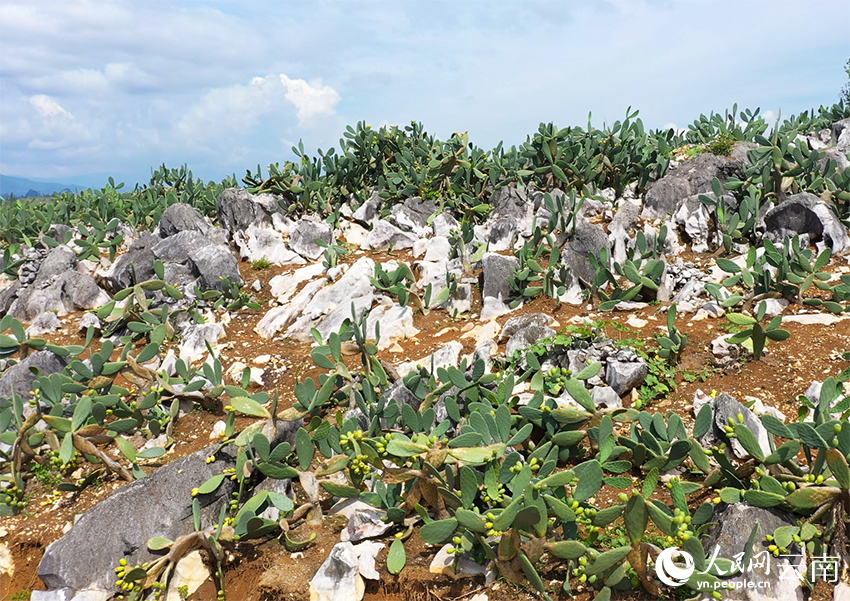
Photo shows cacti planted in the Zhuangzitian village group. (Photo/Wang Hongqiu)
Wang, one of the pioneers in cactus cultivation in the village group, took a significant stride by establishing the first farmhouse restaurant in the village. Going beyond selling cactus fruits, he developed a diverse range of cactus-based dishes, including cactus juice, cactus slices, fried cactus flowers, cactus soup, and a variety of stir-fried dishes incorporating cactus and other ingredients.

Photo shows cacti cultivated by villagers in the Zhuangzitian village group. (People's Daily Online/Xu Qian)
The cactus industry in Zhuangzitian has gained a remarkable reputation, drawing visitors from neighboring villages eager to learn from its success.
Lu has set an ambitious goal for the village: to expand the cactus cultivation area to 30,000 mu by 2024.
Lu's vision goes beyond simply cultivating cacti in Zhuangzitian. He also plans to sell seedlings and share cultivation techniques with rural areas in Wenshan that are struggling with severe rocky desertification.
He said proudly that surrounding villages have already placed orders for cactus seedlings planted on 30,000 mu of land.
Photos
Related Stories
- Yunnan endeavors to cultivate new flower species through space breeding
- Spectacular seas of clouds in Ning'er, SW China's Yunnan
- SW China's Menglian County develops avocado industry
- Wartime lifeline transformed into cross-border trade corridor
- Magnificent autumn scenery of Erhai Lake in SW China's Yunnan
- Villager digs up 3.2 kg wild fungus in SW China's Yunnan
- A glimpse of Culture and Tourism Pavilion at 7th China-South Asia Expo
Copyright © 2023 People's Daily Online. All Rights Reserved.







